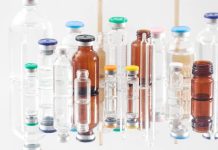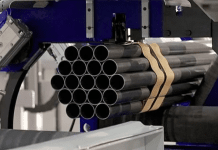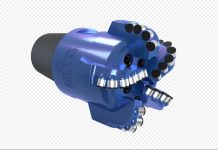Chemical reactions are vital in various industries, including pharmaceuticals, food, and chemical manufacturing. For successful chemical reactions, it is essential to maintain a clean and controlled environment. Impurities can negatively affect the outcome of the reaction and may cause significant problems in the end product. This article discusses the importance of shielding chemical reactions from impurities and the protective role of Glass Jacketed Reactors in this process.
Impurities in Chemical Reactions
Contaminants of various natures have the potential to give rise to numerous issues during chemical reactions. These impurities can stem from diverse sources such as the raw materials deployed, the reaction vessel itself, or the surrounding milieu. The impurities may manifest themselves as dust particles, moisture, airborne pollutants, or other chemical substances.
A laboratory glass reactor is a crucial apparatus in chemical and biological studies. It is a container that allows researchers to perform chemical reactions, distillations, and other operations in a regulated atmosphere.
What If You Don’t Use Glass Jacketed Reactors?
The impact of impurities can be manifold as they can alter the reaction rate, lead to a reduction in the yield, and adversely affect the purity of the end product. Furthermore, impurities may induce unanticipated secondary reactions, which may pose formidable challenges in terms of their management and avoidance.
The inclusion of water in the reaction mixture can stimulate hydrolysis, while the introduction of air can bring about oxidation reactions. Impurities can also cause transformations in the appearance, scent, or consistency of the final product.
Importance of Eliminating or Reducing Impurities in Chemical Reactions
Impurities must be removed or reduced in order to consistently produce high-quality goods. Eliminating the source of contaminants is the best method to prevent them. This may be accomplished by using premium raw materials and maintaining a hygienic reaction environment. The introduction of contaminants during the reaction process may also be avoided by using high-quality reaction vessels, including Glass Jacketed Reactors.
Protective Role of Glass Jacketed Reactors
Glass Jacketed Reactors are one of the most commonly used types of reaction vessels in the chemical industry. They consist of a glass vessel with a jacketed space between the inner and outer walls. The jacketed space can be filled with heating or cooling fluids to maintain the desired reaction temperature. Glass Jacketed Reactors are preferred because they provide a clear view of the reaction, allowing for easy monitoring and control.
The principal advantage of Glass Jacketed Reactors lies in their proficiency in safeguarding chemical reactions against impurities. The dual-layered construction of the container furnishes a barricade that can thwart the ingress of impurities from the surroundings. The application of Glass Jacketed Reactors can also aid in impeding contamination from the reaction vessel itself.
Glass Jacketed Reactors for Chemical Reactions
Glass Jacketed Reactors are particularly well-suited for conducting chemical reactions that require precise temperature control, especially those that necessitate high-temperature maintenance. The interspace between the walls of the reactor can be packed with a coolant, resulting in efficient heat exchange and temperature management. In addition, Glass Jacketed Reactors can help to avoid abrupt temperature fluctuations that may arise from rapid heating or cooling of the reaction mixture, a phenomenon known as thermal shock.
There exist multiple varieties of reaction vessels, including stainless steel, plastic, and glass-lined vessels. Nevertheless, Glass Jacketed Reactors offer many advantages over these alternatives. While stainless steel vessels are strong and can bear high pressure, they can be arduous to clean and susceptible to rust over time. Plastic vessels are lightweight and manageable, but they may not be suitable for high-temperature reactions. Glass-lined vessels are another widespread option, but they may not be suitable for corrosive reactions.
Bonus Read
Maintaining a clean and controlled environment during chemical reactions is critical for producing high-quality products consistently. Impurities can negatively impact the outcome of the reaction, and preventing their entry into the reaction vessel is crucial. Glass Jacketed Reactors are a popular choice for chemical reactions because they provide a clear view of the reaction and offer excellent thermal control while shielding reactions from impurities.
By utilizing Glass Jacketed Reactors, manufacturers can significantly reduce the risk of contamination and produce high-quality products. Therefore, it is essential to consider the protective role of Glass Jacketed Reactors in shielding chemical reactions from impurities while ensuring the quality of the end product.










